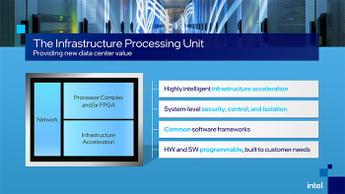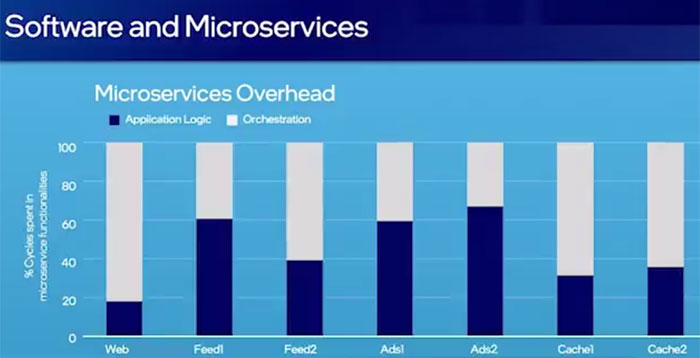During the Six Five Summit Intel has outlined its vision for new a processor family dubbed the Infrastructure Processing Unit (IPU). In brief, this is a new processor type which is "designed to enable cloud and communication service providers to reduce overhead and free up performance for central processing units (CPUs)". IPUs build upon Intel's SmartNIC tech, and the initial FPGA-based IPU platforms already being tested by partners will be succeeded by dedicated ASICs in due course.

The development of IPUs was necessary, reckons Intel's head of Data Platforms Group, Navin Shenoy, as "you have been thinking about the future of the data centre all wrong". As its name hints, the IPU intelligently manages system-level infrastructure resources by securely accelerating those functions in a data centre. Thus, cloud and communications providers can "shift to a fully virtualized storage and network architecture while maintaining high performance and predictability, as well as a high degree of control," says Intel.
 |
 |
Why bother with an IPU? Recent data from Google and Facebook has shown 22 to 80 per cent of server CPU cycles can be consumed by microservices communication overhead – which means that the servers aren't utilising their powerful and expensive Xeon CPUs (for example) for their core intended purpose and removing system congestion.

Intel is by no means the first/only major player looking into IPUs, though its current SmartNIC is probably the leading solution right now. Nvidia acquired Mellanox and came out with the DPU, and the likes of Marvell and Amazon are also manoeuvring to create / use similar dedicated accelerators.







